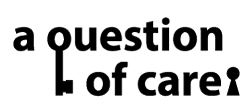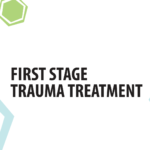Have you ever encountered a client or patient whose life seems to be getting smaller and smaller? They have so much potential, but their mental illness or addiction (or a complex combination of both) seem to be ruling more and more of the individuals life?
As professionals we often prioritize and make a hierarchy of needs to work on with our clients. It is almost an automatic reaction to the information that the client presents. The challenge is – our hierarchy of needs doesn’t always match the clients hierarchy.
For the young woman in the above video, at first glance we might conclude that she needs to get off drugs, arrange social assistance, get a job… In reality, it sounds like she wants to make sure that she does not lose her house. Helping a client to identify what they want and prioritize a set of brief, achievable actions will directly affect the likelihood of movement towards positive change.
Motivational Interviewing is a set of skills and strategies to help improve a clients intrinsic motivation to change. This research validated method of engagement is easy to learn and has many applications across health and social service sectors.
Locally through a collaborative education effort to bring knowledge and skills to service providers, there are many free local opportunities to learn about brief action planning, motivational interviewing and mental illness and addictions. Sign up today to share your knowledge and build your skills.
Learn more about the training calendar here.

